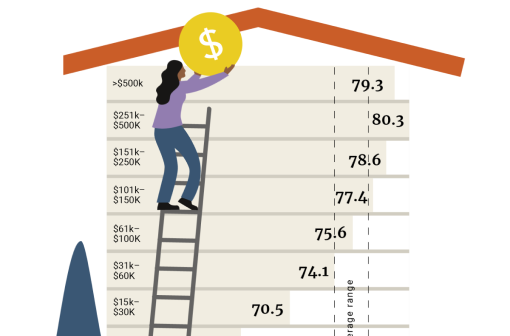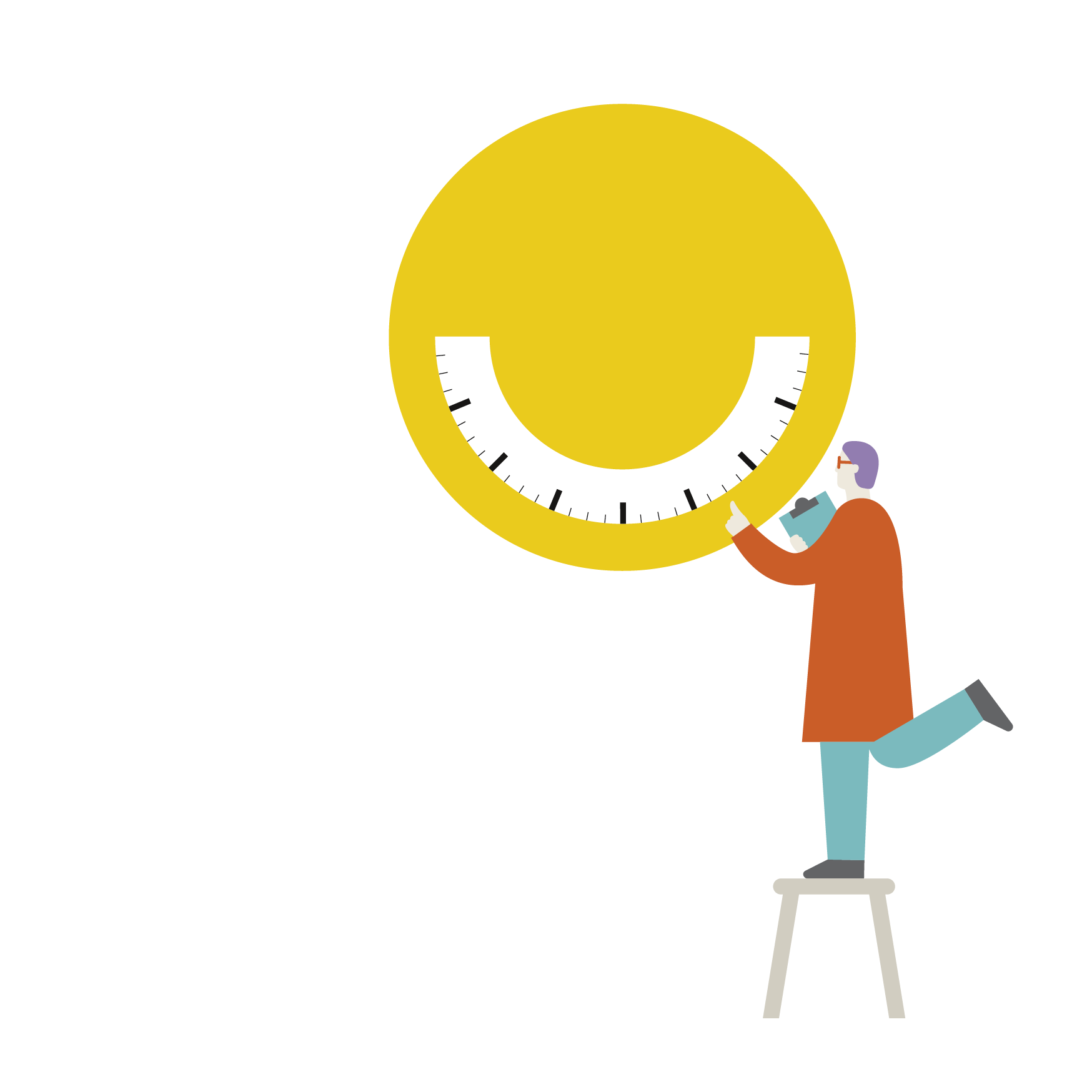While Australians’ overall national wellbeing has remained relatively stable over the past 20 years, a global economic collapse, party leadership issues and a once-in-a-lifetime health pandemic have all triggered fluctuations in our satisfaction with government.
The biggest shift has been in the past decade, which has seen a significant decline in our attitudes towards the government—a situation that’s in contrast to other domains of national wellbeing, such as national security, society and the environment.
Periods of decreasing satisfaction punctuated by short-lived bursts of increased feelings of satisfaction have become the norm, with a peak in satisfaction at Kevin Rudd’s election shifting to a series of lows (leadership instability) and highs (the Global Financial Crisis).

As a result, although average satisfaction levels have remained within the average range in almost all surveys, the average range itself has more than doubled since 2007.
Our research has found that Australians’ satisfaction with government is, on average, six points lower than in the previous decade—with one notable exception.
As COVID-19 rampaged around the globe in early 2020, the government enacted a series of measures to protect the Australian population.
This initial response to the pandemic produced an unprecedented increase in satisfaction, with scores rising 14 points to reach their highest point in the Australian Unity Wellbeing Index’s history.
20 years of Australian politics
The Stolen Generation
On 13 February 2008, newly elected Prime Minister Kevin Rudd formally apologised to our country’s Indigenous people for the forced removal of First Nations children from their families.
Prompted by the findings of an inquiry instigated by the Human Rights and Equal Opportunity Commission in 1995, the formal apology sought to recognise the decades of damage caused by past government policies.
It was a long-awaited apology, and was linked to an increase in people’s satisfaction with government in the same year.
Global Financial Crisis
When Wall Street’s fourth- biggest investment bank went bust in 2008, it sent shivers throughout Australia.
The Lehman Brothers’ collapse signalled the start of the Global Financial Crisis, and sent the Rudd Government scrambling to contain its impact on Australia.
The decision to borrow billions to keep the economy going with a stimulus package helped Australia avoid a recession (one of only four developed countries in the world to do so) and saw people maintain their high sense of satisfaction with the government.
The Rudd–Gillard years
In the end, our satisfaction with the government after its handling of the Global Financial Crisis was short-lived.
Following an internal party spill, Rudd lost the prime ministership in 2010 to his deputy Julia Gillard, who in turn lost it to Rudd in June 2013.
This saw him return as Prime Minister for a second time, but his tenure was brief. In September 2013, Rudd lost the federal election to the Liberal Party’s Tony Abbott.
During this period of leadership instability, our satisfaction with government tumbled from 61 points in 2008 to 44 points on the eve of the election in 2013.
Liberal leadership instability
Successive leadership spills within the Liberal Party reinforced and maintained our dissatisfaction with the government.
Through the prime ministerships of Tony Abbott, Malcolm Turnbull and Scott Morrison, our research shows there has been long-lasting low satisfaction and a lack of confidence in successive Australian governments.

A once-in-a-lifetime health crisis
When the COVID-19 pandemic prompted a global health crisis in 2020, Australia’s response—which included lockdowns across the country and a variety of economic stimulus packages—saw a remarkable increase in satisfaction with government.
In a change not previously seen in the history of the Australian Unity Wellbeing Index, satisfaction increased by 14 points in the May 2020 survey to rise above the measure’s average range.
Compared to outbreaks in other parts of the world, Australians had good reason to be satisfied with the government’s actions to combat COVID-19, which effectively reduced the spread of the virus and limited the number of casualties.
2002–2008: Australians’ satisfaction with government: a story of highs and lows



October 2002:
Bali bombings

August 2003:
Pauline Hanson sentenced to jail for electoral fraud

October 2004:
John Howard (Liberal Party) re-elected Prime Minister

April 2006:
Beaconsfield mine collapse

November 2007:
Kevin Rudd (Labor Party) elected Prime Minister
2009–2020: Australians’ satisfaction with government: a story of highs and lows



June 2010:
Julia Gillard (Labor Party) becomes Prime Minister

September 2013:
Tony Abbott (Liberal Party) elected Prime Minister

September 2015:
Malcolm Turnbull (Liberal Party) becomes Prime Minister

August 2018:
Scott Morrison (Liberal Party) becomes Prime Minister









